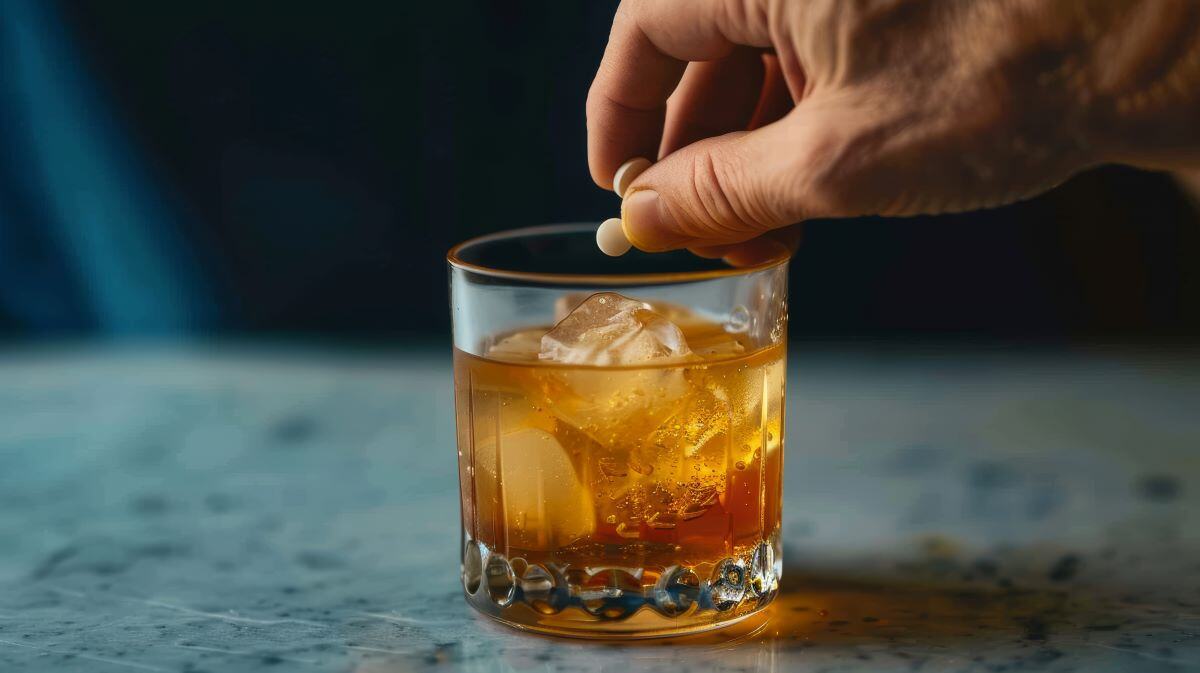Cyclobenzaprine, commonly known by its brand name Flexeril, is a prescription medication used to treat muscle spasms and musculoskeletal pain. It is not an uncommon prescription, but many people don’t know that combining cyclobenzaprine with alcohol can have serious and potentially life-threatening side effects. In this post, we’ll answer the question ‘can you drink on Flexeril?, explore the risks of mixing alcohol and cyclobenzaprine, the signs of intoxication, and the long-term dangers of this combination. These substances can be highly addictive, but there are lots of treatment options for individuals struggling with addiction to cyclobenzaprine and alcohol.
Mixing Cyclobenzaprine and Alcohol
Flexeril and alcohol are both central nervous system depressants, meaning they slow down the functioning of the brain and the body. When these two substances are combined, the depressant effects are intensified, leading to increased impairment and potential overdose. It is important to note that even a small amount of alcohol can have a significant impact when taken with cyclobenzaprine.
Side Effects of Combining Cyclobenzaprine and Alcohol
Cyclobenzaprine side effects with alcohol can be severe and unpleasant. They can include:
- Drowsiness: Both cyclobenzaprine and alcohol can cause drowsiness individually. When taken together, the sedative effects are heightened, leading to extreme drowsiness and difficulty staying awake.
- Dizziness: The combination of these substances can cause severe dizziness, making it difficult to maintain balance and increasing the risk of falls and accidents.
- Slowed mental processing: Cyclobenzaprine and alcohol can impair cognitive functioning, leading to slowed mental processing, poor concentration, and difficulty making decisions.
- Decreased motor coordination: Both substances can affect motor skills and coordination. When combined, they can significantly impair a person's ability to perform tasks that require precision, such as driving or operating machinery.
The risks associated with mixing cyclobenzaprine and alcohol reach far beyond these immediate side effects. Continued use of this combination can lead to addiction and other long-term complications.
Signs of Cyclobenzaprine and Alcohol Intoxication
When someone is intoxicated with cyclobenzaprine and alcohol, there are several outward signs that make it clear. These signs may include:
- Sluggishness and extreme drowsiness
- Slurred speech
- Blurred vision
- Loss of motor control and coordination
- Impaired thought processes and difficulty concentrating
- Diminished reflexes
Individuals under the influence of cyclobenzaprine and alcohol may engage in risky behaviors without considering the consequences, increasing the likelihood of accidents and other negative outcomes.
Long-Term Dangers of Mixing Cyclobenzaprine and Alcohol
Both cyclobenzaprine and alcohol have the potential for addiction and dependence. Prolonged use of this combination can increase the risk of developing substance use disorders and complicate the withdrawal process.
Addiction Risk
The combination of Flexeril and alcohol can increase the likelihood of addiction. When these substances are regularly used together, the brain chemistry is altered, leading to changes in the reward pathways and the way a person experiences pleasure. Physical dependence may develop, and individuals may require higher doses to achieve the desired effects.
Health Complications
Mixing cyclobenzaprine and alcohol can cause severe health consequences. Overdose is a significant risk, as both substances depress the central nervous system and can lead to respiratory depression, coma, and even death. Additionally, the long-term use of cyclobenzaprine and alcohol can lead to liver damage, cardiovascular issues, and mental health disorders.
Treatment Options for Addiction to Cyclobenzaprine and Alcohol
If you or someone you know is struggling with addiction to cyclobenzaprine and alcohol, it is vital to seek professional help. Treatment options are available to support individuals in their recovery journey. Here are some of the treatment approaches commonly used:
- Detoxification
Detox is the first step in treating addiction to cyclobenzaprine and alcohol. It involves safely removing the substances from the body while managing withdrawal symptoms. Detoxification can take place in a specialized facility, where medical professionals provide support and monitoring throughout the process. - Inpatient Rehabilitation
Inpatient rehabilitation programs offer intensive treatment in a residential setting. These programs provide a structured environment where individuals can receive therapy, counseling, and support from a multidisciplinary team. Inpatient rehab helps individuals develop coping skills, address underlying issues, and learn strategies for maintaining sobriety. - Outpatient Programs
Outpatient programs are an alternative to inpatient rehabilitation. They offer flexibility, allowing individuals to receive treatment while still living at home. Outpatient programs may include group therapy sessions, individual counseling, and educational classes to support recovery.
Support Groups and Aftercare
Support groups, such as Alcoholics Anonymous (AA) and Narcotics Anonymous (NA), offer ongoing support and fellowship to individuals in recovery. After completing a formal treatment program, participation in support groups can help individuals maintain sobriety and connect with others who understand their struggles.
Mixing cyclobenzaprine and alcohol can have severe consequences, including increased impairment, addiction, and potential overdose. It is crucial to understand the risks involved and seek professional help if you or someone you know is struggling with addiction to these substances. Treatment options, such as detoxification, inpatient rehabilitation, and outpatient programs, can provide the necessary support for individuals to achieve and maintain sobriety.
Flexeril & Alcohol Addiction Treatment at Avenues Recovery
Remember, recovery is possible with the right help and support! If you or a loved one is struggling with Flexeril or alcohol addiction, help is just a phone call away. Reach out to Avenues Recovery Center and get started on your journey to a life free from the shackles of addiction. Our staff are experts in the field of addiction and are eagerly waiting to help you. We use a comprehensive approach and personalized treatment plans to tailor to each individual's needs. Our skilled and caring staff have helped thousands of people turn their lives around and they can help you too. We will support and guide you every step of the way to recovery. Reach out today to take your first step towards a happier, healthier and sober future.



